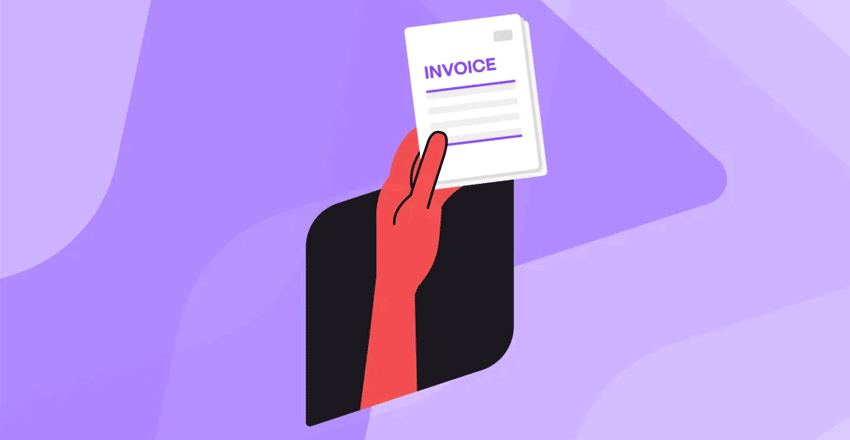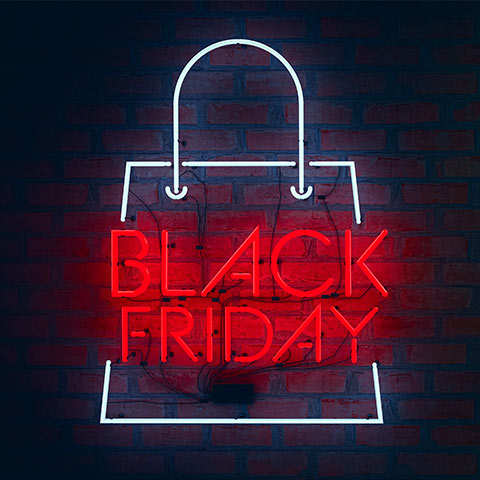Why B2B BNPL is the Payment Solution UK Companies Need to Adopt


The popularity of “buy now, pay later” has changed the face of consumer shopping, with major players like Klarna and Amazon leading the charge.
In a credit-driven world, people appreciate the convenience of spreading costs over time. It stands to reason that the same principle would appeal to companies, but we have yet to see the same uptake in the business world until now.
B2B BNPL looks set to change that. Using improved payment technology, B2B BNPL is one of the fastest-growing payment options globally, with Allianz predicting it to double in size by 2028.
Businesses that want more flexible ways to handle large purchases and split costs are driving this surge, along with a booming B2B e-commerce sector.
The fact that it increases conversion rates by 40% for sellers that offer BNPL also helps.
So, what does B2B BNPL look like for businesses and how can a top B2B payment provider help them get the most out of it?
Read on to find out:
- What is B2B BNPL, and how is it different from B2C?
- How does B2B BNPL work?
- How BNPL benefits businesses and their customers
- The key challenges of B2B BNPL
- What is the B2B BNPL market size in the UK and how is it evolving?
- How Mondu’s B2B BNPL payment solutions help UK businesses grow safely
- How Mondu’s B2B Buy Now, Pay Later led to a 4.5x increase in average orders
What is B2B BNPL, and how is it different from B2C?What is B2B BNPL, and how is it different from B2C?
B2B Buy Now, Pay Later (BNPL) lets businesses buy goods and services upfront, and then pay for them over time.
Like its B2C equivalent, it’s a way of spreading the cost of large purchases, something that companies love because it improves cash flow.
Yet business BNPL also differs from B2C in the following ways:
- Payment terms: B2B BNPL basket values are higher, which means longer terms with complex conditions, while B2C BNPL uses shorter, simpler terms.
- Decision making: B2B involves multiple decision-makers; B2C is typically a personal decision.
- Payment methods: B2B can integrate with systems like CRM and invoicing, using various payment methods; while B2C is more focused on online payments.
- Transaction fees: B2B usually charges buyers fees; B2C fees are often paid by sellers.
Some people view business BNPL as a type of trade credit, but this doesn’t do it justice. Trade credit tends to come with stricter payment schedules with higher interest rates and penalties, which BNPL doesn’t have.
B2B BNPL adoption has been slower due to the complexity of handling it in-house, but better payment technology and the emergence of new B2B BNPL providers creates a new profitable opportunity for businesses.
How does B2B Buy Now Pay Later Work?How does B2B Buy Now Pay Later Work?
B2B BNPL payment processes are designed to be much quicker and more convenient than traditional credit methods.
Here’s how it works:
- Purchase: A business chooses the items or services it needs and selects BNPL at checkout.
- Approval: The BNPL provider quickly reviews the buyer for credit and fraud risk and approves the transaction if all looks OK.
- Payment: The due amount is split into monthly instalments over a set period or deferred to a later date (e.g., 30, 60, or 90 days).
- Completion: The buyer makes the payment according to the agreed terms, while the seller is assured of the full upfront payment from the BNPL provider, who makes sure the process runs smoothly.
How B2B BNPL benefits businesses and their customersHow B2B BNPL benefits businesses and their customers
More B2B businesses than ever are offering BNPL options because they tick so many payment boxes for trade customers – and themselves.
Here’s an overview of the benefits BNPL gives to both business buyers and sellers.
For business customers
Improved cash flow
Spreading out the cost of a large purchase gives peace of mind and breathing space to a business, which can use subsequent sales to help fund it, instead of dipping into reserves or borrowing.
Ability to invest in growth
With more payment flexibility, companies can invest in expansion, inventory, or other opportunities without the burden of paying large sums upfront.
Reduced financial strain
Spreading costs over time reduces financial pressure and lets companies operate more efficiently.
For business sellers
Increased conversion rates
Offering BNPL as a payment option reduces cart abandonment by 29%, according to Allianz, which leads to the conversion spikes of 40% mentioned earlier.
The reason is simple: business customers are more likely to complete purchases when they have flexible payment terms.
Higher Average Order Value (AOV)
Not only do conversions shoot up, but spreading repayments encourages larger orders if buyers know they have time to pay them.
“By offering BNPL, companies can incentivize buyers to make larger and more frequent orders since the immediate financial burden is reduced”, says Rodney Bain, co-founder and president of APEXX Global, speaking to Forbes. “This can lead to increased sales and higher order values”.
“Companies can incentivise buyers to make larger and more frequent orders since the immediate financial burden is reduced”
Rodney Bain, co-founder and president | APEXX Global
Customer loyalty
B2B BNPL builds trust, especially for new trade customers who appreciate the ability to pay at a later date. If they know they can trust a seller because they offer convenient payment terms, they’re more likely to come back for more.
On the face of it, B2B buy now, pay later is a win-win, yet there are also some potential downsides to consider.
The key challenges of B2B BNPL
The benefits of buy now, pay later for business are clear, but integrating it into business operations isn’t all plain sailing for companies.
B2B BNPL Companies that wish to offer flexible payment options to their customers independently must overcome several obstacles.
Liquidity and cash flowLiquidity and cash flow
Extended payment terms are great for business customers, but not so much for sellers. Delays in receiving payments make it harder to manage day-to-day operations, replenish stock, or invest in new projects, especially in industries where large invoices are common.
Complex credit decisionsComplex credit decisions
Evaluating the creditworthiness of B2B buyers is far more intricate and riskier than for B2C customers. Businesses often deal with higher-value goods, and late payments or defaults can massively impact cash flow management, so they need to be spot-on. However, pressure to approve credit quickly creates a risky balancing act between speed and accuracy.
Administrative burdenAdministrative burden
Credit checks aren’t the only task: sellers must handle accounts receivable and chase late payments. If a deal goes wrong, the workload can be overwhelming, particularly for smaller companies without dedicated teams.
One way that businesses can overcome these challenges is to outsource the risk and operational burden of B2B BNPL to an external provider like Mondu. Buyers receive their goods quicker and enjoy flexible payments, while sellers get their payment in full upfront, without the hassle of managing credit checks and collections.
What is the BNPL market size in the UK and how is it evolving?
In the UK, business BNPL use is gathering momentum with the market forecast to expand to over five times its 2023 value within five years, according to market intelligence company NMSC.

The growth of the UK’s BNPL market size
There are several reasons driving this surge.
80% of B2B customers now expect a B2C-like payment experience, according to customer experience experts Lumoa, which includes options like buy-now-pay-later. Almost three quarters (72%) say that BNPL is their preferred payment method, payments technology company TreviPay Inc. found in a survey of 300 global B2B buyers.
In other words, if B2B customers don’t see BNPL as a payment option, then the odds of cart abandonment rise, meaning a missed sale opportunity for the merchant.
Many companies have attempted to adapt to this trend by offering buy-now-pay-later services to their trade customers, but most come with clunky set-up processes and low approval rates.
Mondu’s B2B-focused BNPL solution attempts to stand out from other providers by offering a unique service designed to fit seamlessly into daily business operations, including an average increase of 57% in basket size from customers.
Holding an EMI license and operating across most of Europe (including the UK), Mondu offers the highest approval rates, with real-time authorization on purchases up to €1 million.
Mondu also boasts the largest variety of payment options, from invoice payments (30-90 days) to instalments (3, 6, and 12 months), plus a Digital Trade Account for consolidated payments.
Features like automated reconciliation and the netting of payouts simplify financial tasks, while integration with ERP and CRM systems (as well as the banking layer) saves setup time.
Mondu helps merchants save time and money, which they can use on growth tasks rather than tedious manual processes.
How Mondu’s B2B BNPL payment solutions help UK businesses grow safely
Offering business-to-business BNPL services in a growing UK market is a smart move, yet doing it safely is difficult without a solid system in place. Mondu’s secure B2B payment solution was designed to help UK companies make that leap.
Speed up credit checks for higher sales and lower risk
You might think that faster credit checks mean more errors, but Mondu offers both speedy and precise customer appraisals.
Our accurate real-time credit checks minimise the risk of late and non-payments and our system also serves up a high approval rate of 91%, which translates to higher sales.
Should non-payment or insolvency occur, Mondu absorbs the loss and you bear no risk.
>91% |
+36% |
+57% |
Approval Rate |
Conversion Rate |
Basket Size |
Get paid instantly
While your customers benefit from spreading their payments over a fixed period, you need not wait to receive your funds.
Mondu pays you immediately once an order is confirmed for shipment, so you don’t need to worry about non-payment. Instead, you get the money upfront which you can reinvest into your business as working capital, or whatever else you choose.
Eliminate administrative burden
Admin work is gradually going digital, but it still eats up countless hours of form-filling and chasing payments if a customer doesn’t pay.
Mondu reduces the burden of administrative tasks, covering collections and dunning. You don’t need to worry about chasing payments because you will already have the payment in full.
Protect your business with world-class security
Mondu’s security standards are built to give both you and your customers peace of mind.
Certified to ISO 27001 standards, our platform guarantees top-tier data security for all personal information. Mondu also holds an EMI (Electronic Money Institution) license and is supervised by the Dutch central bank (DNB), while in the UK it is also registered and surprised by the FCA.
Ready to find out how your business can offer its own BNPL service? Contact us today to book a demo and discover everything Mondu has to offer.
Want more like this?
Want more like this?
Insight delivered to your inbox
Keep up to date with our free email. Hand picked whitepapers and posts from our blog, as well as exclusive videos and webinar invitations keep our Users one step ahead.
By clicking 'SIGN UP', you agree to our Terms of Use and Privacy Policy


By clicking 'SIGN UP', you agree to our Terms of Use and Privacy Policy
Other content you may be interested in
Categories
Categories
Categories

Want more like this?


Want more like this?
Insight delivered to your inbox
Keep up to date with our free email. Hand picked whitepapers and posts from our blog, as well as exclusive videos and webinar invitations keep our Users one step ahead.
By clicking 'SIGN UP', you agree to our Terms of Use and Privacy Policy








![[Research] Apps: The Secret Engine of Ecommerce Growth [Research] Apps: The Secret Engine of Ecommerce Growth](https://images.bizibl.com/sites/default/files/apps-and-web-similarweb-480.jpg)
